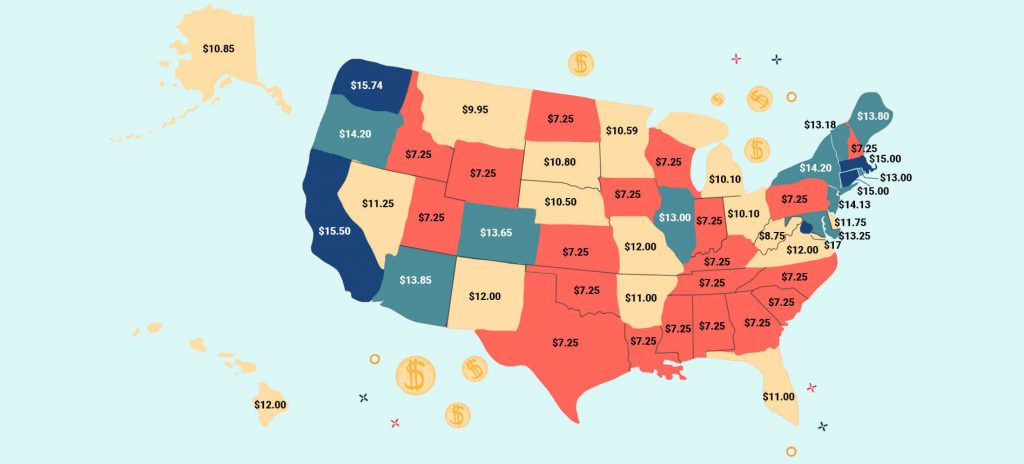In my last blog post, I discussed the frustration of tipflation, pointing to a real living wage as a solution. And so, it is paramount that we discuss the Federal minimum wage and the benefits of raising it. Last changed in July of 2009, the Federal minimum wage has remained at a meager $7.25 an hour. But more concerning, The Federal minimum wage is not tied to inflation, meaning Congress must manually raise the wage with a new policy every few years. When we look at the 2007 Federal wage adjusted for inflation, the minimum wage has decreased by 28% since then. With around 2,080 hours of work in a year, the Federal minimum wage earns an annual salary of about 15,080. This is not a living wage for most Americans.
For example, many need help to afford necessities like housing on this wage. According to NPR, the median rent in the U.S. is now above 2,000 a month, which is simply unaffordable on a minimum wage salary. Many Americans have minimum-wage jobs but still don’t have the funds to lift themselves out of poverty. Raising the minimum wage to 15 an hour could help raise anywhere from 1.9 to 4 million people out of poverty.
Low minimum wage also contributes to inequality as many affected by minimum wage have historically been discriminated against. For example, Women make up 63.5% of the earners at or below the minimum wage. Additionally, occupational segregation has pushed many women of color and Latinas into occupations like child care, fast food workers, and dishwashers. Unsurprisingly, this set of jobs makes up 74% of jobs paid at or below the poverty line. Raising the minimum wage has the potential to directly benefit these historically marginalized groups.
Raising the minimum wage would be incredibly helpful across the United States. It could help increase the salaries of 32% of the population in Texas, 15% of the population in Pennsylvania, and 5% in Alabama and Tennessee. These are states that do not impose higher wages, like California, where the default minimum wage is now 15 an hour. Raising the Federal minimum wage is raising the bar for millions across the country to the standards of states with higher minimum wages already in place.

While this is only one lens of a very complex issue, the possible increases in affordability, equality, and opportunity make the case essential to talk about. My next few blog posts will discuss different approaches and problems with the minimum wage so we, as American voters, can make more informed decisions in the future.
